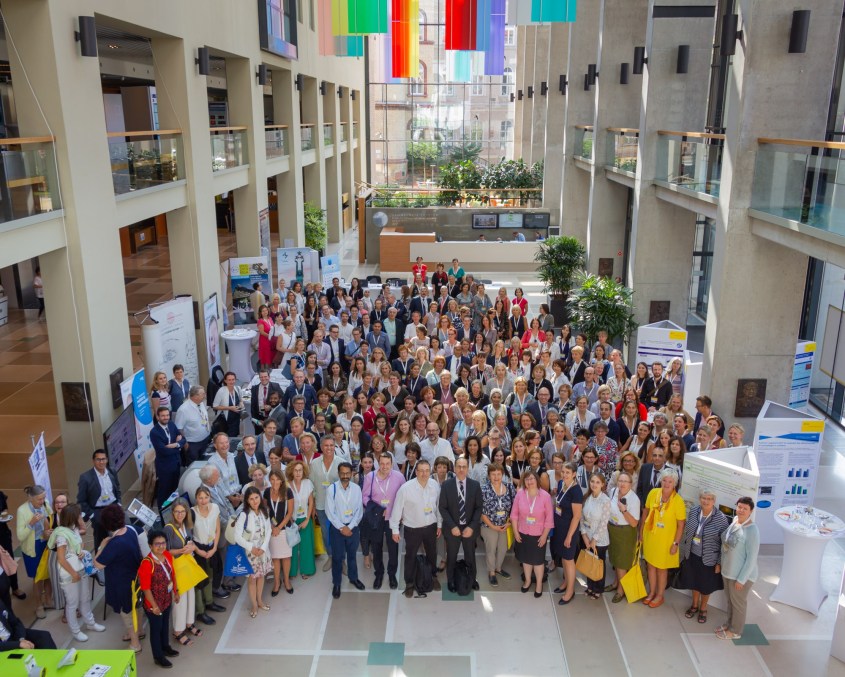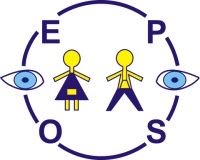|

The EPOS Statutes
Preamble
In consideration of the historical formation of a previously informal group dealing scientifically with paediatric ophthalmology since 1973, the European Paediatric Ophthalmology Group EPOG, these statutes reflect the intention of the former EPOG, now European Paediatric Ophthalmological Society EPOS, to adjust its structure and to advance its aims. The location of the society in Switzerland was chosen as being comparable to other international and non-governmental organisations.
These statutes were adopted by the Constitutional Session in Geneva on the 27th of October 2001 and were extended at the 7th general Assembly of EPOS in Leuven in 2008 and at the 9th General Assembly of EPOS in 2010 in Bad Nauheim.
The current version of the statutes was adopted during the annual meeting taking place 18th-19th June 2021(EPOS 2021 Virtual Conference).
Article 1: Constitution
The EPOS is a society constituted in conformity with Article 52 (2) and Article 60 et seq. of the Swiss Civil Code, and for an undetermined term.
EPOS is a financially and scientifically independent non-profit organisation.
These statutes are available in German and English languages. In the case of discrepancies, the German language version of the statutes takes precedence
Article 2: Name
The name of the Society is European Paediatric Ophthalmological Society EPOS
Article 3: Domicile
The domicile of the Society is Zürich, Switzerland.
The board decides the legal domicile of the Society.
Article 4: Communication
The official language of the Society is English.
Article 5: Aims
The aims of the Society are:
- To bring together ophthalmologists, paediatricians, geneticists, electrophysiologists, and basic researchers interested in the field of paediatric ophthalmology, including genetic diseases of the eye.
- To provide a forum for researchers in the field of paediatric ophthalmology, including genetic diseases of the eye for open discussion and sharing information.
- To encourage in particular young clinicians and scientists to specialise in paediatric ophthalmology and genetic diseases of the eye.
- To promote European collaborations in the study of paediatric ophthalmology, including genetic diseases of the eye.
- To disseminate scientific knowledge related to paediatric ophthalmology, especially by annual conferences.
- To improve standards of practice within Europe in paediatric ophthalmology.
- Financial support of selected research projects with one-off payments of up to 10,000 Euro when the researcher is younger than 35 years and the financial circumstances of EPOS permit.
Article 6: Membership
Section 1: Active membership
- Those eligible for membership include individuals interested in the field of paediatric ophthalmology, including genetic diseases of the eye. They may be physicians, basic scientists, professionals allied to medicine, or graduate or undergraduate students.
- Members are accepted by decision of the Board. Possible refusals need not be justified.
Section 2: Honorary Membership
- Honorary membership may be awarded to individuals who, in the opinion of the Board, have acquired particular distinction in the field of paediatric ophthalmology, including genetic diseases of the eye, or who have performed particularly meritorious work for the Society.
- Candidates for honorary membership are proposed by the Board and elected by the Assembly of Members without discussion.
- Honorary members do not pay membership fees.
Article 7: Membership Fees
Section 1: Annual assessment of membership fees
- The amount of annual fees shall be proposed annually by the Board and fixed by the Assembly of Members.
- For students and residents in training, a reduced level of fees is fixed.
- Members may apply for a reduction of the annual fees. The decision is taken by the Board.
- In all cases, annual fees shall cover the society expenses.
Section 2: Payment of fees
Annual fees shall be due and payable by January 31st of the year for which they are levied. They are paid into an account opened in the name of the society.
Section 3: Liability
Any financial obligations of the Society will be met exclusively with Society funds. Personal liability for members is excluded.
Article 8: Assembly of Members
- The Assembly of Members shall meet at least once a year. The board will confirm the time and place of the annual meetings several years in advance. Although the society is incorporated in Switzerland, meetings may take place outside of Switzerland.
- The President must invite members and provide the agenda at least two weeks in advance.
- Individual proposals for discussion must be provided to the President at least one week before the date of the assembly.
- The Assembly of Members decides by simple majority of members present. On request of one third of the members present, a decision is taken by secret ballot.
- Members may represent each other at the meeting, but no member may represent more than two other members.
- If the President receives a written request signed by at least 20% of members, they must convene an extraordinary general meeting. The request must provide justification for the urgent meeting and submit the agenda items for discussion and voting.
Article 9: Board
- The Board shall consist of the President, a Secretary, a Treasurer, four elected members. The Board may retain an external legal adviser or lay member with citizenship of, or residence in, Switzerland for administrative purposes.
- The Board is elected by the Assembly of Members for a period of four years. The members of the Board are elected individually by secret vote. The President shall be elected one year before commencement of his or her term of Office to serve as President Elect on the board. The president shall be elected from the board or be a former board member. Re-election is permitted.
- The Board organises and constitutes itself. Decisions may be taken by written communication in any form.
- As the executive organ of the Society, the Board is responsible for the transaction of business. In particular, the Board organises the activities, public relations, online publications, etc., of the Society. The Board works together with the relevant local organisations in order to organise scientific conferences (annual EPOS meetings).
- The Board is responsible for decisions regarding applications for research grants. It may seek advice or reviews regarding the merit of individual applications from members or external experts.
- Members of the Board are not compensated for their activities. Expenses incurred will be repaid. The Board may authorise one-off payments for specific tasks.
Article 10: President
- The President presides at the meetings of the Assembly of Members and of the Board. He or she is entitled to represent the Society and to enter into obligations on behalf of the Society.
- Payments up to an amount of EUR 3000 must be approved in advance by the President and Secretary or Treasurer (according to the principle of dual control). Higher amounts require the approval of the Board. These rules do not apply to expenses arising from the annual EPOS Conference.
- The President approves the annual scientific conference. He/She will receive administrative assistance from the Secretary or Treasurer.
- Invitations to the Members Meeting are in the name of the President. He/she will submit their report to the annual Assembly of Members.
Article 11: Secretary and Treasurer
- The Secretary and the Treasurer shall assist the President in the discharge of his/her duties and, in the absence of the President, shall assume the President’s duties
- At the annual meeting, the Secretary shall keep minutes of the proceedings. They may be assisted by an administrator, who is not required to be a member, paid for by EPOS. If the Board commissions external administrators, this will be facilitated by the Treasurer, who will retain oversight.
- It shall be the duty of the Secretary to present their report, and of the Treasurer to present a financial report, to the members at the annual Assembly of Members. Their reports shall be taken into consideration for fixing the annual fees. The Treasurer provides access to the accounts for auditing purposes on an annual basis
- The Assembly of Members elects two account auditors for a period of two years. The account auditors report to the general assembly annually. The account auditors are not members of the board and shall act independently from the board.
Article 12: Meetings of EPOS
- EPOS shall organise annual meetings that may be held as free-standing meetings or in conjunction with other international or national meetings.
- The Board may award travel grants to members and non-members according to merit and need.
Article 13: Termination of membership, resignation and exclusion of Members
- Membership expires with resignation, exclusion, or death.
- Resignation from the Society is possible at any time. If resignation occurs midway through the membership year, the complete membership fee is retained. If a member ceases to pay membership fees, resignation from the Society will be assumed. Such persons may rejoin the Society at a later date. Fees unpaid may be excluded by decision of the Board.
- A Member may be excluded if and when their behaviour fails to meet accepted standards of scientific work, is unethical, or damages the reputation of EPOS. Following a request from the Board, the membership may vote to expel a member with a majority of two thirds of attending members. The affected member will have the opportunity to make a statement to the Board. A decision to exclude a member is final. The decision of the Board does not need to be justified and is final (Article 72 Paragraph 1 and 2 ZGB).
Article 14: Dissolution
- The EPOS shall be dissolved by a decision taken by the General Assembly at two thirds majority of the members present, on proposal of the President. A report shall be presented by the President an by the Treasurer concerning the dissolution.
- If the EPOS is dissolved the funds shall go to the UNICEF nutrition unit (or similar unit), Geneva, Switzerland, after payment – as far as possible – of the debts and fulfilment of all its obligations.
- Dissolution shall be performed by the Board.
Article 15: Commencement
The above statutes were enacted by the General Assembly of 18th – 19th June 2021. They replace the statutes from 27th October 2001 (including the revisions from 2008 and 2010).
